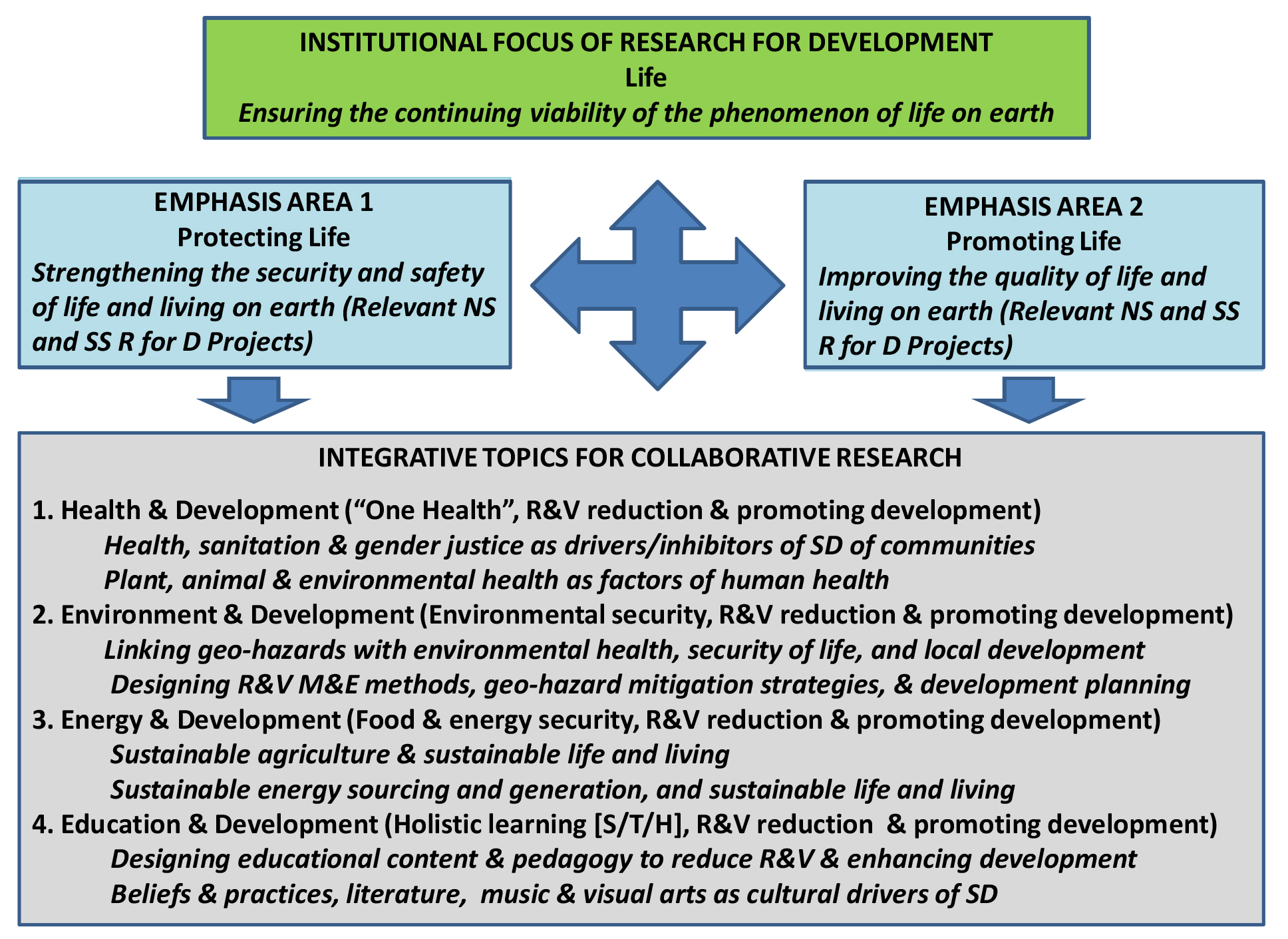Mission, Vision and Framework
The vision of the Research and Development Center, with its core inspired by the University’s vision, is committed to the development of the scholarships of faculty through research for the well-being of society and environment. This is reflected in the research framework of Silliman University which is focused on the investigation and pursuit of sustainable development with emphasis on the protection and promotion of life. Thus, the primary mission of the Research and Development Center is to mentor faculty across disciplines on the rigors of writing research proposals, collecting and processing data, writing of research report and publishable research articles in refereed journals from the research projects they undertake with financial support from within and outside of the University. The center is also mandated to offer opportunity and encourage faculty in all academic units to participate in collaborative and interdisciplinary research projects, locally and internationally.

Research Agenda
To guide the faculty members on what research projects to undertake, the 10 – point research agenda
or themes were presented, reviewed, discussed and improved during the Coordination Meeting of
designated Research Coordinators of all academic units. The research agenda were based on the
following: the vision and mission of Silliman University, the current issues that are critical to human
well-being and the quality of the natural environment as well as the research topics that easily get
funding from external sources.
The coverage of the research agenda is also broad enough to provide opportunity for all academic units
of the university to be involved. Moreover, the faculty members of different academic units are also
encouraged to engage in an interdisciplinary or interdepartmental research project. This will promote
productive crossing of disciplinal boundaries as well as maximize the use of human and financial
resources from within or outside of Silliman University.
- Ethics, religiosity, spirituality, and philosophical thinking across generations and spaces
- Gender articulations, issues on children, the elderly, and persons with disabilities in different
contexts - Perceptions of and human responses (adaptation and mitigation) to climate change, environmental
threats and opportunities, costs and benefits of environmental protection and conservation - Governance, economics, law, legal reform, peace, justice, and social equity
- Evidence-based innovations, alternative and complementary methods in the practice and delivery of
quality health care, including reproductive health services - Financial sustainability, resource management, food safety and security, and nutrition
- Innovations and assessment in teaching, including language, literature and communication studies
- Tourism, heritage (cultural, historical and natural) management, and the development of
contemporary arts - Issues in land use, rural and urban development, and sustainable agriculture initiatives
- Human impacts of and innovations in engineering, business practice, entrepreneurship, and
information technology
This was reviewed and amended by the Research Coordinators of the academic units presided by the
Research Director on July 16, 2018.
Research Publications by Faculty
- Nadia P. Abesamis
- Angel C. Alcala
- Margaret Helen U. Alvarez
- Gina A. Fontejon-Bonior
- Theorose June Q. Bustillo
- Hilconida P. Calumpong
- Earl Jude Paul L. Cleope
- Roy Olsen D. de Leon
- Camille Marie G. Enopia
- Jean Theresa O. Go
- Robert S. Guino-o II
- Reagan P. Jomao-as
- Ben S. Malayang III
- Ferdinand M. Mangibin
- Dave E. Marcial
- Marcelino C. Maxino
- Mikhail Lee L. Maxino
- Alana Leilani T. Cabrera- Narciso
- Jeffry Ocay
- Enrique G. Oracion
- Renee B. Paalan
- Clarissa T. Reboton
- Arvin C. Revagorda
- Elizabeth Susan Vista-Suarez
- Maria Lorena L. Tuballa
- Mae Brigitt Bernadel L. Villordon


